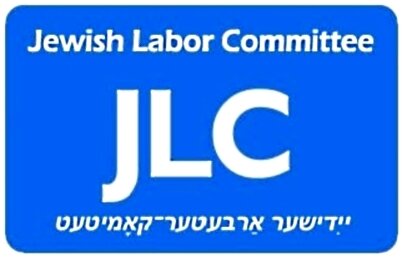In the Midst: Exploring Systemic Racism through the lens of Yiddish Culture
with Anthony Mordechai Tzvi Russell
In this three-part series, Anthony Mordechai Tzvi Russell will join a panel in exploring issues of systemic racism in the United States through the lens of moments in Yiddish culture: Leyb Malach’s play Mississippi, written in the wake of the infamous Scottsboro Boys trials; Yoysef Kerler’s poem Ven Kh’volt in Alabama Zayn, written in response to the American Civil Rights Movement, and the diverse engagements in the Yiddish language press with the phenomenon of anti-Black racism in the United States.
Anthony Russell is a vocalist, composer and arranger specializing in music in the Yiddish language. His work in traditional Ashkenazi Jewish musical forms led to a musical exploration of his own ethnic roots through the research, arrangement and performance of a hundred years of African American roots music, resulting in the EP Convergence (2018), a collaboration with klezmer consort Veretski Pass exploring the sounds and themes of one hundred years of African American and Ashkenazi Jewish music. Anthony also performs in a duo, Tsvey Brider (“Two Brothers”), with accordionist and pianist Dmitri Gaskin, composing and performing their original music set to modernist Yiddish poetry of the 20th century. An essayist in a number of publications including Jewish Currents and Moment Magazine, Anthony lives in Massachusetts with his husband of five years, Rabbi Michael Rothbaum.
Thursday, February 18, 2021, 7:00-8:30pm ET
Familiarity and Distance: Yoysef Kerler’s Ven Kh’volt in Alabama Zayn
Maia Evrona and Amelia Glaser
When a Soviet Yiddish poet is inspired to pick up his pen in response to the American Civil Rights movement, what experiential resonances arise for the poet? Anthony Mordechai Tzvi Russell, with guests Maia Evrona and Amelia Glaser, will visit Yoysef Kerler’s 1965 poem Ven Kh’volt in Alabama Zayn as an entry into a larger discussion of Jewish projections onto Black struggle in Yiddish poetry, contemporary reception of the American Civil Rights movement and the horizons—then and now—of ethnic solidarity.
Maia Evrona is a poet, writer, and translator. Her translations of Yoysef Kerler were awarded a 2019 Yiddish Book Center Translation Fellowship. She also received fellowships for her translations of Avrom Sutzkever from the NEA and the American Literary Translators Association. Her poetry was recently supported with the inaugural joint Spain-Greece Fulbright Scholar Award.
Amelia Glaser received a BA from Oberlin College in Comparative Literature in1997, an MSt. from the University of Oxford in Yiddish in 2000, and a Ph.D in Comparative Literature from Stanford University in 2004. She held fellowships at the Harvard Ukrainian Research Institute and the Herbert D. Katz Center for Advanced Judaic Studies at the University of Pennsylvania, and was a lecturer in Jewish Studies and at the Center for Russian, East European, and Eurasian Studies at Stanford University before joining UCSD's Literature Department in 2006. Her research and teaching interests include Russian literature and film, transnational Jewish literature, the literatures of Ukraine, the literature of immigration to the US, the Russian critical tradition, and translation theory and practice.
Other In The Midst Programs:
Injustice and Interpretation: Leyb Malach’s Mississippi
Thursday, February 4, 2021, 7:00-8:30pm ET
Report and Reverberation: Fault-lines of Race of in the Yiddish Press
Thursday, March 4, 2021, 7:00-8:30pm ET
Co-sponsors: Be'chol Lashon, Boston Workers Circle, Congregation Beit Simchat Torah, Congregation Kol Ami, Detroit Jews for Justice, Jewish Community Action, Jewish Community Relations Council of the Sacramento Region, Jewish Labor Committee, JFREJ, Museum of Jewish Heritage - A Living Memorial to the Holocaust, National Council of Jewish Women, Reconstructing Judaism, Ritualwell, T'ruah, Yaffed, Yiddish Book Center, and YIVO Institute for Jewish Research.


















